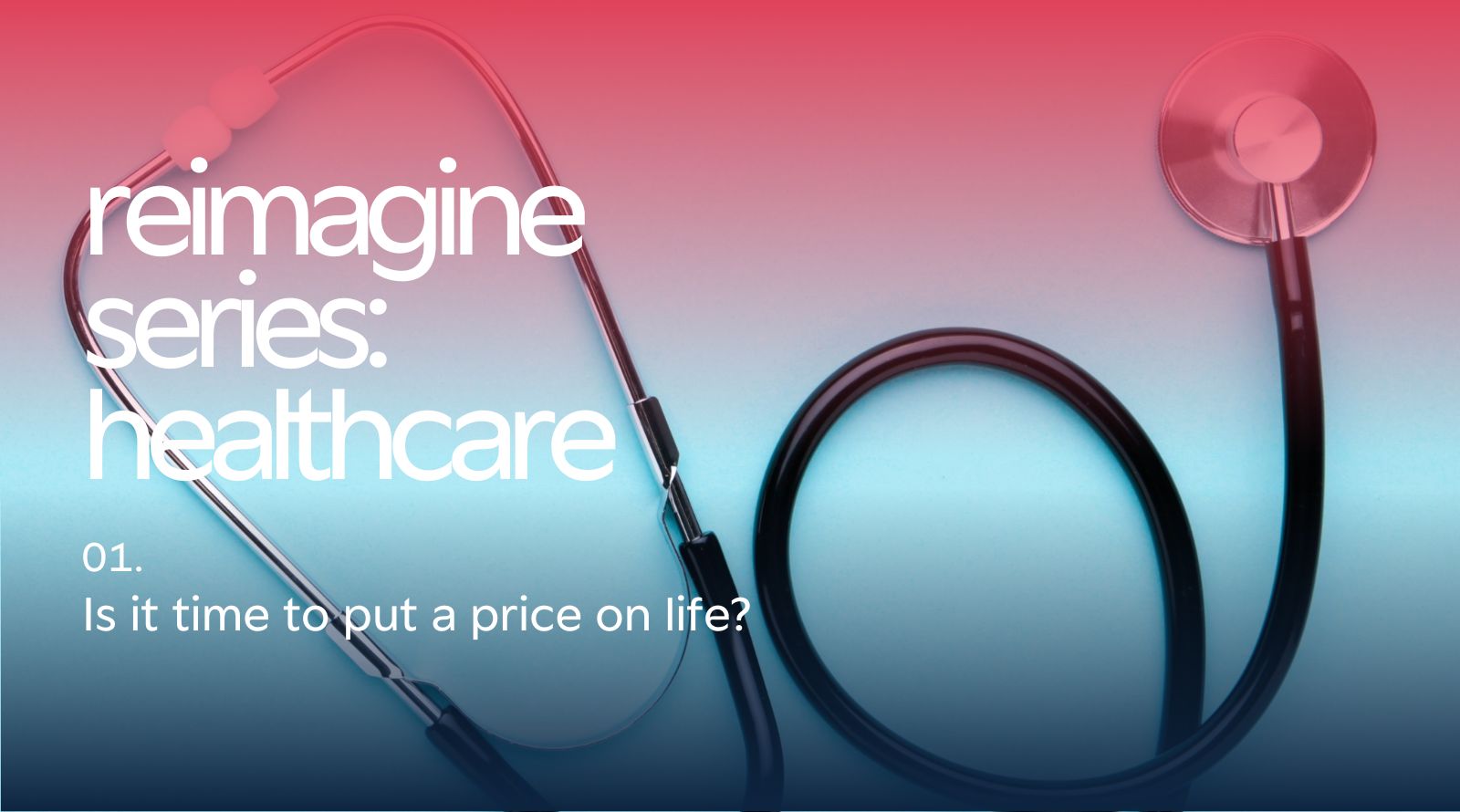In a new series we look at how our researchers are rethinking some of the biggest challenges that humanity faces. Healthcare is a big issue.
Increasing healthcare costs are a burden on society. Global spending on healthcare hit a record US$ 9.8 trillion or 10% of GDP in 2021 1.In America, healthcare costs US$ 4.5 trillion in 2022 2. While $1.8 trillion in global healthcare expenditure contributes little to positive health results, according to the World Economic Forum 3.
The sustainability of many healthcare systems has become an issue. Reimagining healthcare is essential. This is the focus of the academic work of Pascal St-Amour, Professor of Economics at HEC Lausanne.
The crux of his research intitled “Valuing Life over the Life Cycle” involves putting a value on someone’s life over their whole lifespan 4. “This may seem uncomfortable, but these conversations must be held, and these metrics should be calculated, if we’re to make better choices. This is where economic theory and research are valuable,” states the professor.
For instance, life values are relevant when health services decide to invest in lifesaving drugs for certain demographics and illnesses such as Covid, or to determine whether costly road safety improvements are worth the investment in terms of the value of extra lives saved. They are also useful to calculate compensation in the case of wrongful death litigation.
“Doctors put a value on life when they consider an intervention that is going to cost a specific amount to prolong someone’s life by a certain number of years — is it worth it and what benefit will it bring? There is an underlying question here, what is the value of a human life and how to adjust it for personal characteristics, such as age or resources? What is the value of beneficial versus detrimental changes in longevity?” explains Professor St-Amour.
“If one hospital ventilator is available, should you allocate it to the younger, wealthier and healthier individual or to someone that is the exact opposite? As a society we need this information since so much is spent on healthcare.” he adds.
Covid pandemic was a catalyst for making such evaluations. Vast healthcare resources were diverted to this viral outbreak, while other vital treatments were cancelled or postponed, likely resulting in current and expected future deaths. A valid question is whether societies factored in the complete human cost of these decisions.
Three methods can be drawn upon to answer this question:
Firstly, the human capital approach puts a value on someone’s life in terms of foregone lifetime income.
Secondly, the Value of a Statistical Life evaluates a collective willingness to save an unidentified person through policy intervention, for example, by building safer roads.
Thirdly, research can now compute an individual person’s willingness to pay for changes in their own longevity. This last approach makes it possible to take into account somebody’s wealth, health and mortality risk, as well as age.
“My research “Valuing Life over the Life Cycle” fits into this 3rd approach. It contributes to the calculation of a society’s or individual’s willingness to pay, either to attain positive healthcare outcomes, or to prevent bad outcomes. and to evaluate the underlying value of life. It can provide an unbiased, objective view based on an economic model,” details Professor St-Amour.
“Such models allow policy makers to better evaluate healthcare costs and make trade-offs between the quality versus quantity of life. It’s important to have an open mind and to apply rigorous economic theory to such difficult questions.”
References:
1. World Health Organisation, WHO calls on governments for urgent action, Dec 2023
2. U.S. Centers for Medicare & Medicaid Services, Accessed Sept. 2024
3.How data-driven digital healthcare tools cut costs and boost outcomes, WEF, Sept 10. 2024
4, 5. St-Amour, Pascal, “Valuing Life over the Life Cycle“, Journal of Health Economics, Volume 93, January 2024




